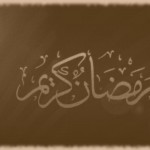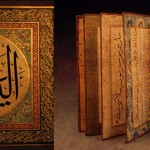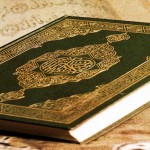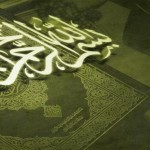Ibrahim Haqqi : An awliya from Erzurum
Ibrahim Haqqi was born in Erzurum in the year of 1703. In his own words he describes his early life as “For twenty-five years I worked hard to study “ilm” and I’ve been in love with Allah since forgetting about the whole world and its affairs and thus I became an areef. Then I left everything related to work and other worldly possessions and oriented myself towards the path of Allah(j.j) only.”
He lost his mother at the age of seven and he studied tafsir, hadith, fiqh with his father. His father’s friend Molla Muhammad has taught him astronomy and maths. For his “batini” studies he attended the sohbet circles of Ismael Faqirullah. Sohbet is a social gathering around an awliya to engage in conversations related to tasawwuf studies.
After his father passed away he continued to study his “ilm” and arrived in Istanbul and he did additional studies and researches at the sultanate library at the Ottoman palace.
He then returned to Erzurum to become a teacher at the zawiye of Abdurrahman Gazi.
His entire life was dedicated to reading and studying and writing books. In his famous work, “Marifetname” he also included works of biology and natural sciences other than subjects of religion. Marifetname means “the book of the areef”. Areef means “to know Allah(j.j). İbrahim Haqqi believes that one can only know about Allah(j.j) if his mind and heart works in conjunction, in other words, Allah(j.j) can’t be known with mind only, heart is also a medium to “learn” about our Creator. Because he believes that the heart is the place for the “loved one”. Here, naturally, he means about divine love, the love for Allah(j.j), the kind of connection a soul can have for his Creator.
He was also very good in poetry and he regarded poetry as another tool to learn about Allah(j.j). The way he sees it, that Allah(j.j) should be the subject of poetry.
One day, he was preaching his students and he wanted to divert their gaze for their own body so that they can observe their creation process. He told them to ponder about their own body and its creation to become “arif-i billah” which mean the one who know about Allah(j.j)
He passed away in the year of 1781 and was buried in the town of Tillo near his teacher’s tomb, Ismael Faqirullah.
From the many works of his poems we know that regarded that as another medium to meet with Allah(j.j)









You must be logged in to post a comment Login